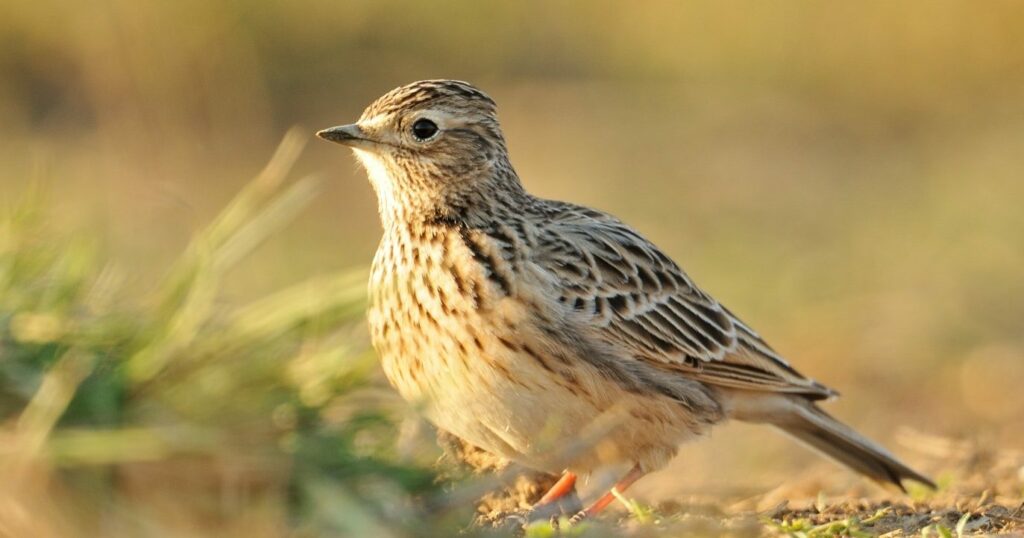Worrying decline
Many meadow bird species in the Netherlands have been in sharp decline for years. The Black-tailed Godwit (Limosa limosa), the country’s national bird, has seen its population plummet from 120,000 to around 25,000 pairs over the past 50 years. Being a vital region for the Black-tailed Godwit, the Netherlands has an international responsibility to save this species from extinction.
The main driver behind this decline is the intensification of agriculture. Meadow birds, including the Black-tailed Godwit, Northern Lapwing (Vanellus vanellus), Common Redshank (Tringa tetanus), Eurasian Oystercatcher (Haematopus ostralegus), and Skylark (Alaudidae), thrive in large, open, herb-rich grasslands, with high water levels. These habitats provide shelter for nests and ample food such as earthworms and insects. Grass should be cut late, only after the young have fledged.
But these habitats have been replaced by monotonous grasslands, consisting mostly of English ryegrass with low water levels almost everywhere. To reverse the decline in meadow bird populations, far-reaching measures are needed to effectively protect their breeding areas, including designating breeding areas and implementing nature-friendly agricultural practices.
“Something really needs to be done now, before we lose our meadow birds for good.” – Karsten Schipperheijn, Director of Vogelbescherming Nederland
A plan for action
Back in 2016, Vogelbescherming Nederland filed a complaint with the European Commission due to the Netherlands systematic failure to meet its international obligations for protecting meadow birds and their habitats. Despite this, the situation for these birds has continued to deteriorate, prompting the European Commission to take legal action.
The Birds Directive requires EU countries to designate Special Protection Areas (SPAs) to safeguard bird habitats. There are already plans in place that prioritize the protection of meadow birds, such as the Black-tailed Godwit Action Plan. This plan, co-initiated by Vogelbescherming, outlines concrete steps to preserve the Black-tailed Godwit and other meadow birds while providing financial support to farmers.
A key component of the Godwit Action Plan is providing long-term financial security to farmers participating in conservation efforts. Unfortunately, this has yet to be established under the current government, making it difficult for farmers to contribute effectively.
Picture by Yves Adams
More support needed
Schipperheijn is deeply concerned about the large decline of meadow birds. Yet, he prefers to think in terms of possibilities: “Let’s not forget that meadow birds need farmers. Many farmers already dedicate themselves to this cause daily, but the government must offer more to support them properly and further increase the number of bird-friendly farmers. It’s essential to provide these farmers with long-term contracts and help them acquire more land for bird-friendly farming practices. In other words, a larger piece of land for grazing, with enough space for meadow birds to breed. A dedicated budget for this purpose is crucial. Farmers deserve long-term stability and a viable income.”
Looking ahead
The European Commission’s infringement procedure requires the Netherlands to meet its international obligations for meadow birds. This could potentially lead to a European Court of Justice ruling, where proceedings last several years. In 2022, the Netherlands faced 61 infringement cases, most of which were resolved before reaching the court.
“We hope it doesn’t come to that in this case, said Schipperheijn. At Vogelbescherming, we’re ready to work on solutions. We would prefer the Dutch government takes action because they also realize that the current situation is unsustainable. Together, we must implement plans to restore a cultural landscape that supports meadow birds. The government must take immediate action before it’s too late.”
Source link : https://www.birdlife.org/news/2024/07/30/eu-takes-the-netherlands-to-court-over-failure-to-protect-meadow-birds/
Author :
Publish date : 2024-07-30 07:00:00
Copyright for syndicated content belongs to the linked Source.
